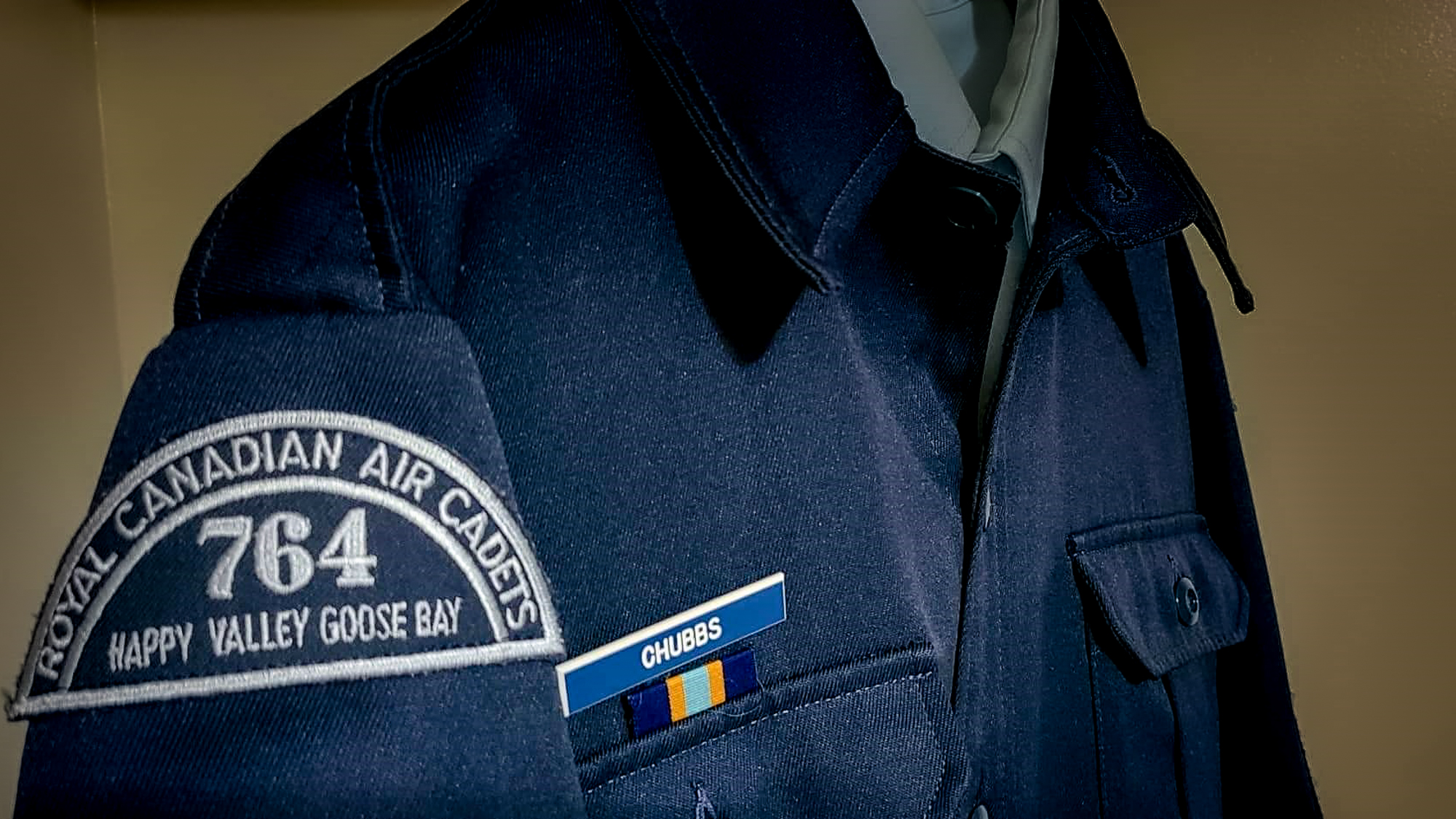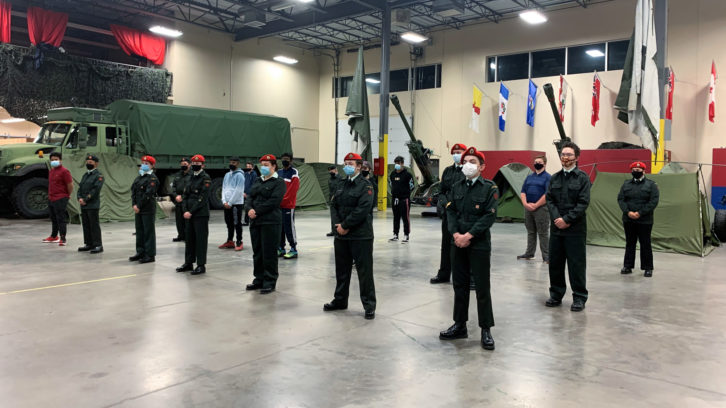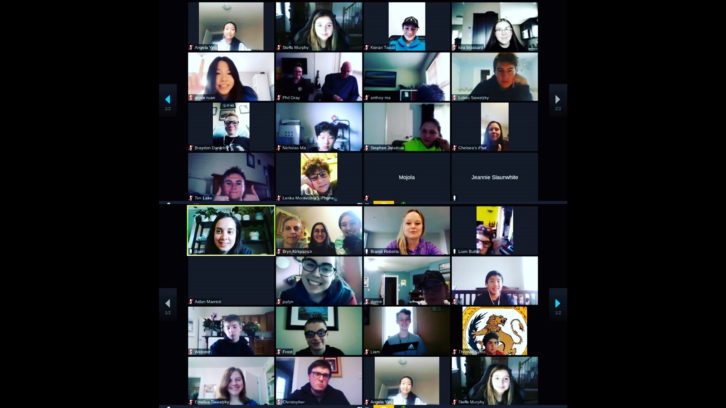Halifax cadets move from the parade floor to video chat
COVID-19 means no marches or in-person meetings for now

caption
An unused air cadet uniform hangs in a closet.On Monday nights, Katie Clyburne goes to Cadets. This year, though, her tidy blue uniform hangs unused, her black boots don’t need to be shined, and her commute there has shortened significantly.
Clyburne simply sits at home and joins a video conferencing program her squadron uses for its weekly training session.
“We use Microsoft Teams and then we break off into groups by level, so you have one senior instructing all of the people in the level,” said Clyburne, 18, describing a typical Monday evening.
Clyburne has been an air cadet with 292 Halifax Fairview Br. 142 since 2017. While in-person training plans are approved, training remains virtual due to COVID-19 restrictions in the area.

caption
2632 Army Cadets formed up for a regular meeting night. They’ve switched to virtual program delivery amid rising COVID-19 cases in the Halifax area.The Canadian Cadet program is free for Canadians between the ages of 12 and 18. It encourages fitness and leadership, and aims to develop a participant’s citizenship, health and well-being.
Cadet units come in three varieties — sea, army or air — and typically meet at least once per week for drills and specific training sessions, such as knot tying. There are summer training programs across Canada.
These days, a virtual training night for Clyburne starts with what she refers to as a morale boosting session and Q&A before the squadron breaks into groups for two half-hour periods of cadet-led instruction. Once the last class ends, senior cadets meet with officers and discuss how the night went.
Clyburne teaches one or two classes per week, typically on aviation and history. She said she misses the in-person interaction typical of a normal year.
“Now that that part is just completely cut it’s a little more challenging, but I taught my first Level 1 class of the year last Monday, and all the cadets seemed really into the class, which is something that I was very happy about,” Clyburne said.
Annie Ruan, 16, has been a sea cadet with 1 Nelson in Halifax since 2016. She said virtual training means fewer topics to cover in class. Activities like knot tying are harder to teach, while others like drill — marching to commands — aren’t possible.
“I do see some problems with kinesthetic and more physical training as well as drill. That was something that I really enjoyed as a newer cadet, and unfortunately it’s not something that we can currently do with online training,” Ruan said.
Plans to return to regular training were announced in late August, but the resumption of in-person activities remains contingent on local conditions. In the Halifax region, all training is virtual at the moment.

caption
Cadets of 1 Nelson Royal Canadian Sea Cadets gather on a Zoom call.COVID-19 has meant other changes for the program.
“Like many community-based programming working with this current reality, we’ve seen an overall decline in new cadets this year;” Capt. Liam Mather of the Regional Cadet Support Unit said in an email to The Signal.
“However, the program remains open to new cadets, and across Atlantic Canada, we have seen an increase in retention of current cadets.”
While the experience is different than last year, Ruan finds it worthwhile and is still learning about teamwork and leadership.
“The true meaning of being a team player is helping out because you want to genuinely help the people in your team, not because you want to be recognized for helping in the first place,” she said.
About the author
Michael Chubbs
Michael Chubbs is a reporter based in St. John's, Newfoundland & Labrador. he/him
